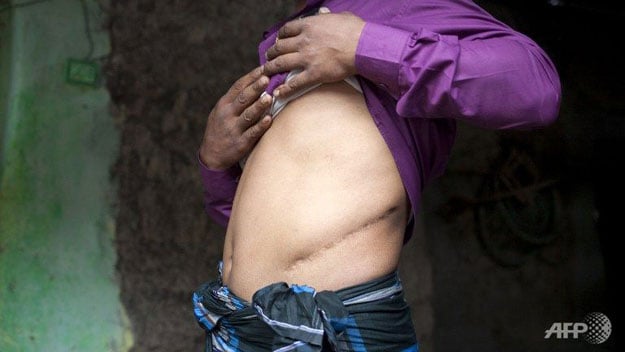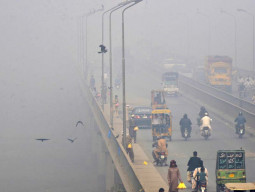
After an increasing number of illegal kidney transplant cases surfaced with at least three rackets busted in Rawalpindi in the last three months, the Punjab Human Organ Transplantation Authority (PHOTA) has thrashed out a strategy to tighten the noose around those involved in the heinous crime.
PHOTA Assistant Director Hasan Akhtar talking to The Express Tribune said that the prime reason behind the increasing number of illegal kidney transplant cases in Rawalpindi was its geographical location.
He said that Rawalpindi borders Azad Jammu and Kashmir and Khyber-Pakhtunkhwa and people frequent through border areas. He said that another major reason for the increase in illegal kidney transplants was the spike in the number of human kidney failures over the past years.
“The kidney failure cases are continuously rising due to diabetes, blood pressure and unhealthy lifestyle among the citizens,” he said adding that three major rackets have been busted in Rawalpindi during the last three3 months. He said that unfortunately, doctors, surgeons and other educated people have also been found involved in the heinous crime and have been arrested.
He said that the investigation has revealed that most kidney recipients were foreigners, especially from Gulf countries. He said that kidney transplantation in Gulf and Arab states is a very complicated process.
“Kidney patients find people in Rawalpindi who sell their kidney for up to Rs0.3 million but the racket further sells it to the donor for Rs10 to Rs11 million. Those involved in illegal kidney transplants in Rawalpindi said that they receive up to Rs11 million from foreign patients/recipients and up to Rs4 million from local patients, who look for kidneys,” he said.
He said that operations were conducted in Rawat, Morgah and Taxila in collaboration with Rawalpindi police. He said that the investigation of recent cases revealed that all those who sold their kidneys for money hailed from very poor families and they were paid up to Rs0.2 million by the rackets for one kidney. He said investigations also revealed that individuals who sell kidneys to these rackets also become their agents for ‘commission’. He said that these agents help the rackets find financiallycrippled people intending to sell their kidneys. He said that those involved in the network mostly target brick kiln workers.
Hasan Akhtar said that the police were being apprised of the PHOTA act to register cases against people involved in the illegal transplantation of kidneys. He said that there was a need to raise awareness among people about illegal transplantation of human organs. Through an awareness campaign, he said, the public could be educated that kidneys could be donated legally to loved ones. “If a kidney transplant is done legally, it costs a maximum of Rs2 million,” he said.
He said that keeping the increasing number of kidney failure, the PHOTA act has been amended and now not only blood relatives can donate kidneys to patients, but also extended family can donate kidneys. Apart from this, he said people who do not get donors can avail of the facility of ‘donor swap’. Under this facility, if two donors whose tissues do not match with the intended patient but have a tissue match with another patient, such individuals can swap organs and donate.
























COMMENTS
Comments are moderated and generally will be posted if they are on-topic and not abusive.
For more information, please see our Comments FAQ